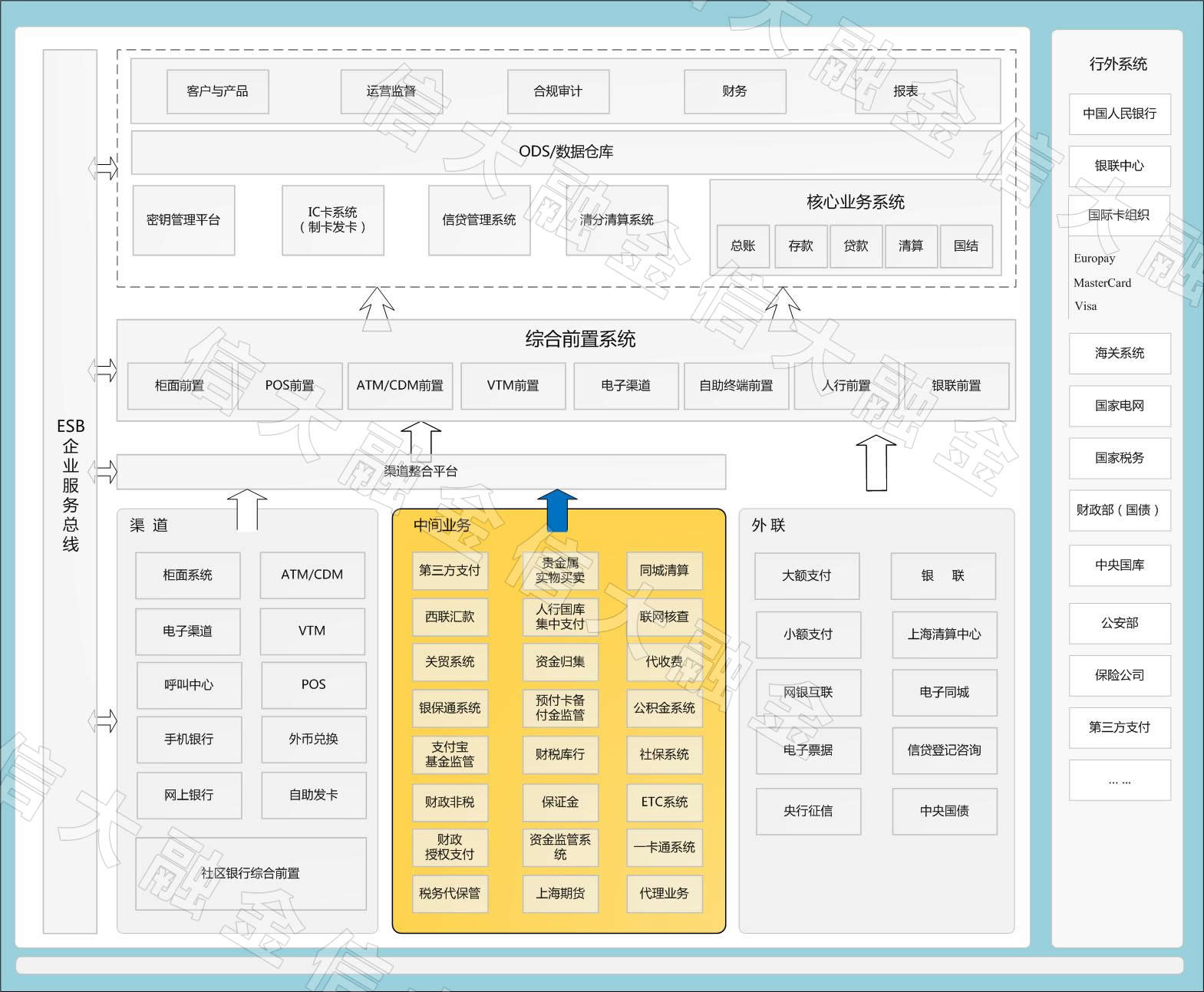Xinda Finance Intermediary Business System
Xinda Finance Intermediary Business System
In a broad sense, intermediary business refers to activities that do not constitute on-balance sheet assets or liabilities for commercial banks, but generate non-interest income for banks. Leveraging their advantages in technology, information, institutional networks, funds, and reputation, commercial banks act as intermediaries and agents on behalf of clients to handle payments, consultations, agency, guarantees, leasing, and other entrusted matters. They provide various financial services and charge certain fees for their operations, with limited or no use of the bank's own funds.

The List of Middle Office Systems | ||
Type | Serial Number | System Name |
Head Office Middle Office System | 1 | Third-party payment system |
2 | Western Union Money Transfer System | |
3 | Proxy for the U.S. Embassy's Business System | |
4 | Trade Management System | |
5 | Bank-Insurance Integration System | |
6 | Alipay Fund Supervision System | |
7 | Central Fiscal Non-Tax System | |
8 | Central Treasury Authorized Payment System | |
9 | Tax Custody System | |
10 | Precious Metal Physical Trading System | |
11 | People's Bank of China Central Treasury Payment System | |
12 | Personal Funds Collection System | |
13 | Shanghai Futures Exchange System | |
14 | Prepaid Card Reserve Fund Supervision System | |
15 | Payment of UK Visa Application Service Fee | |
16 | Online Verification | |
Branch Middle Office System | 1 | City-wide Clearing System (Local Check Clearing) |
2 | Margin System | |
3 | Financial Tax Treasury System | |
4 | Collection Fee | |
5 | Local Finance Authorized Payment System | |
6 | Local Fiscal Non-tax System | |
7 | Public Provident Fund System | |
8 | Social Security System | |
9 | Electronic Toll Collection System | |
10 | One Card System | |
11 | Funds Supervision System | |


